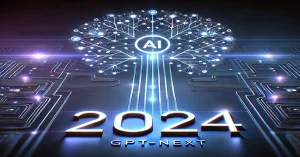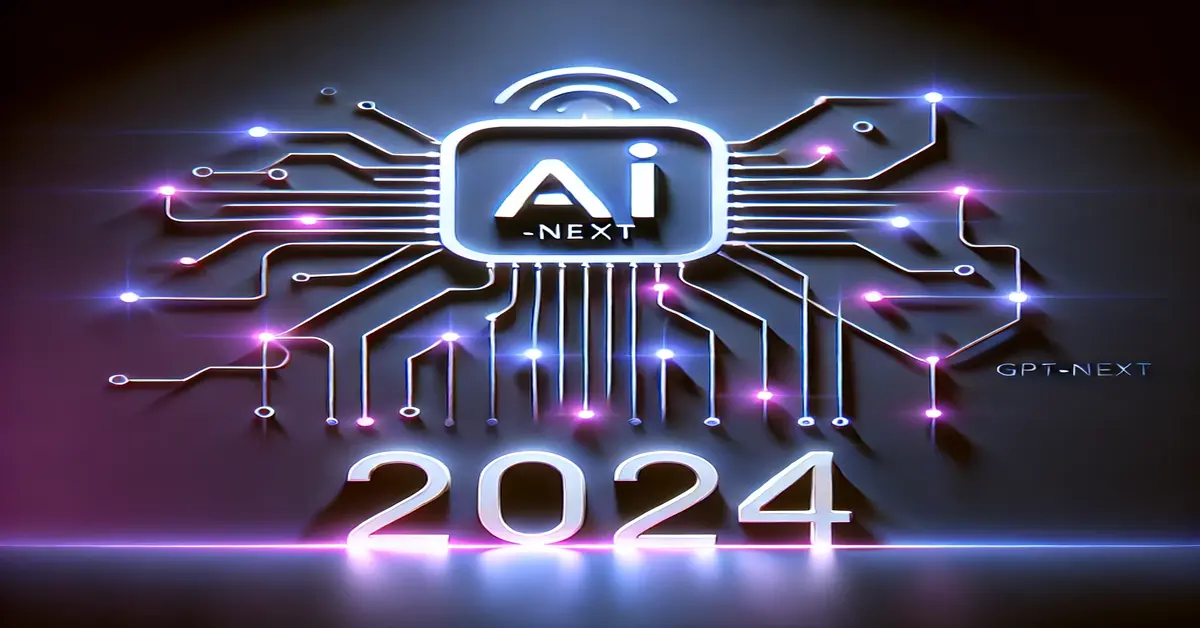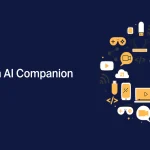OpenAI’s GPT-Next: A 100x Leap in AI Power Set for 2024
The world of artificial intelligence (AI) is advancing at a breakneck pace, with OpenAI leading the charge in revolutionizing the capabilities of AI models. Since the release of GPT-3 and its even more advanced successor, GPT-4, OpenAI’s technology has redefined what’s possible with AI-driven natural language processing (NLP). Now, the next frontier is within sight—GPT-Next, a model expected to be 100 times more powerful than GPT-4, is poised for release in 2024. This announcement, made by OpenAI Japan’s President Tadao Nagasaki during the KDDI Summit 2024, has set the tech world abuzz with speculation and anticipation. In this article, we’ll explore the anticipated features of GPT-Next, its business impact, and what the future holds for AI.
The Rise of GPT-Next: What We Know So Far
OpenAI’s Track Record in AI Development
OpenAI has cemented its position as a leader in artificial intelligence, primarily due to its series of GPT models. These models, such as GPT-3 and GPT-4, have not only set the gold standard for NLP but have also become integral to a wide range of applications. The latest version, GPT-4, boasts remarkable accuracy, fluency, and creativity in generating human-like text. It powers numerous applications, from chatbots like ChatGPT to tools used for content creation, data analysis, and more.
However, OpenAI is not resting on its laurels. According to Tadao Nagasaki, the upcoming GPT-Next will be a colossal leap forward. He hinted at the KDDI Summit 2024 that GPT-Next will be 100 times more powerful than GPT-4. What makes this development so exciting is that this increase in power won’t just come from scaling up computational resources, but from innovations in efficiency and architecture.
The “Strawberry” System: A Key Component of GPT-Next
Central to GPT-Next’s development is a new system known as “Strawberry,” which is rumored to be a smaller yet more advanced version of OpenAI’s current architecture. While specific details of the Strawberry system remain tightly guarded, it is expected to significantly enhance how the AI model learns and processes information. Unlike earlier models that relied heavily on raw computational power, GPT-Next will achieve its groundbreaking capabilities by optimizing learning algorithms and improving the architecture’s efficiency.
This is a departure from traditional approaches to AI model scaling, where more power usually meant more hardware and bigger models. OpenAI’s focus on optimization signals a shift in the AI development landscape, one that prioritizes efficiency without compromising power.
How GPT-Next Could Redefine Business Applications
The Enterprise Adoption of AI: A Growing Trend
AI’s influence on business operations is already substantial, and OpenAI has been quick to recognize the growing enterprise demand for AI tools. In August 2023, OpenAI launched ChatGPT Enterprise, a business-oriented version of its popular chatbot, designed to enhance workplace productivity and offer advanced security features. Since its release, the adoption of ChatGPT Enterprise has been nothing short of impressive, with over 80% of Fortune 500 companies integrating it into their operations. Early adopters like Canva, PwC, and Zapier have already showcased how AI can be leveraged to boost efficiency, automate tasks, and enhance decision-making processes.
With GPT-Next, the potential for businesses to optimize workflows and drive innovation will reach new heights. The promise of a model that is 100 times more powerful and more efficient means that companies can expect AI to handle more complex tasks, faster and more accurately than ever before.
Industries That Stand to Benefit the Most from GPT-Next
- Healthcare:
The healthcare sector is primed to benefit greatly from the next wave of AI advancements. The new model could accelerate the development of diagnostic tools by analyzing vast datasets with greater speed and accuracy. It could also play a key role in personalizing treatments and improving patient outcomes by providing real-time insights to healthcare professionals. - Finance:
Financial institutions already use AI for tasks like fraud detection and risk management. The next-generation model could take this to another level, analyzing complex financial data faster and offering deeper insights. Its enhanced natural language processing (NLP) could also lead to more effective customer communication and personalized financial services. - Education:
AI’s role in education is set to grow exponentially. This new model could offer personalized learning experiences tailored to individual student needs, adapt in real-time to learning progress, and automate administrative tasks, freeing educators to focus on teaching. - Marketing and Sales:
Businesses are increasingly relying on AI to provide personalized marketing content. The upcoming AI model could process customer data more efficiently, creating highly targeted marketing strategies that resonate with specific audiences. Its ability to enhance customer interactions, particularly in sales, could also improve conversion rates and customer satisfaction.
GPT-Next and the Ethical Considerations of AI Advancements
Addressing AI Safety and Governance
As AI models like GPT-Next grow exponentially in power, so too do the ethical concerns surrounding their use. OpenAI has been diligent about implementing safety measures in its AI models, but GPT-Next’s capabilities will likely necessitate even stricter oversight. With the potential to disrupt industries, shape economies, and impact societies, AI governance becomes more critical than ever.
OpenAI will likely continue to build robust frameworks to mitigate the risks of misuse. This includes preventing the model from being exploited for malicious purposes, such as generating misinformation or automating harmful tasks. Additionally, as the AI becomes more adept at human-like interactions, it raises questions about transparency and accountability. Users need to know when they’re interacting with AI and be assured that it’s operating within ethical guidelines.
The Role of Governments and Institutions in AI Regulation
While companies like OpenAI are proactive in addressing AI safety, the role of government regulation cannot be understated. As AI technology evolves, the need for global standards on its development and deployment becomes urgent. Governments around the world are beginning to understand the importance of regulating AI, not just to foster innovation but to ensure that its growth is controlled and ethical. As GPT-Next approaches its release, the conversation around AI governance is expected to intensify, potentially shaping the future of global AI policies.
What the Future Holds: GPT-Next and Beyond
While GPT-Next is set to launch in 2024, OpenAI is already laying the groundwork for future AI models. According to Nagasaki, a more advanced version of GPT-Next could be released in 2025. This aligns with OpenAI’s exponential growth model for AI, where each new iteration of its models significantly surpasses the capabilities of its predecessor.
The Exponential Growth of AI Technology
At the KDDI Summit 2024, Nagasaki emphasized that AI technology, unlike traditional software, grows exponentially. This means that the advancements we see in AI are not just incremental improvements but revolutionary leaps forward. GPT-Next represents one of these leaps, and future models will likely continue this trend. As OpenAI refines its architecture and optimizes learning algorithms, the possibilities for AI applications in both personal and professional settings become limitless.
Conclusion: GPT-Next and the Dawn of a New AI Era
The 2024 release of OpenAI’s next AI model marks the dawn of a new era in artificial intelligence. Promising 100 times the power and efficiency of GPT-4, this model is poised to revolutionize industries, transform business operations, and redefine human-AI interactions. From healthcare to finance and education, the benefits of AI’s next phase will be felt across all sectors.
As businesses prepare for the arrival of this groundbreaking technology, the opportunities for growth, innovation, and productivity are immense. This next step in AI evolution is not just about more power; it’s about smarter, more efficient AI capable of transforming the future. Whether you’re an enterprise leader or an AI enthusiast, staying ahead of these developments will be key to capitalizing on the future of artificial intelligence.
Stay tuned for more updates on GPT-Next and OpenAI’s continued advancements in artificial intelligence. Whether you’re an industry professional, a business owner, or an AI enthusiast, make sure to stay informed as this revolutionary technology approaches its 2024 release.







